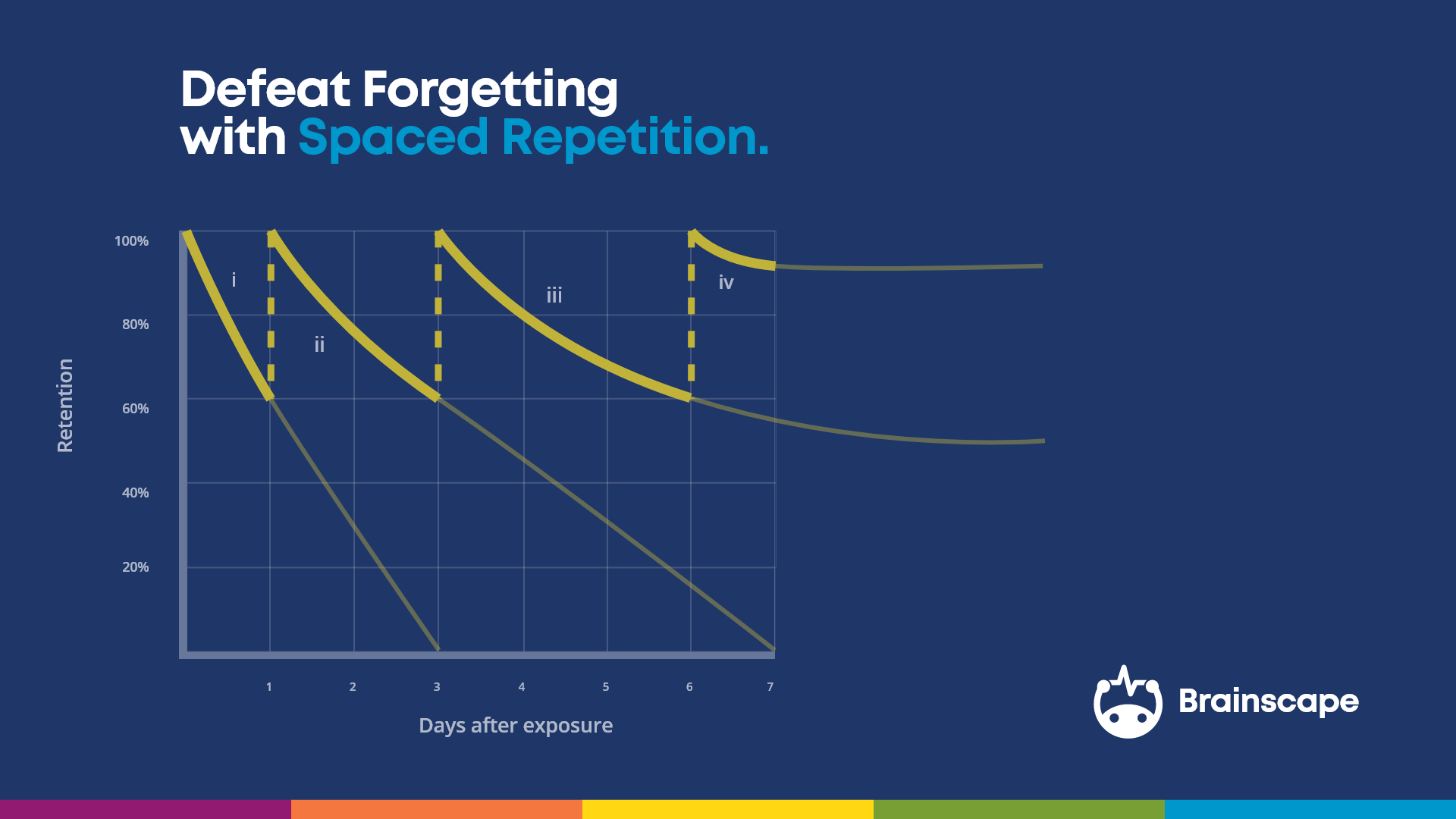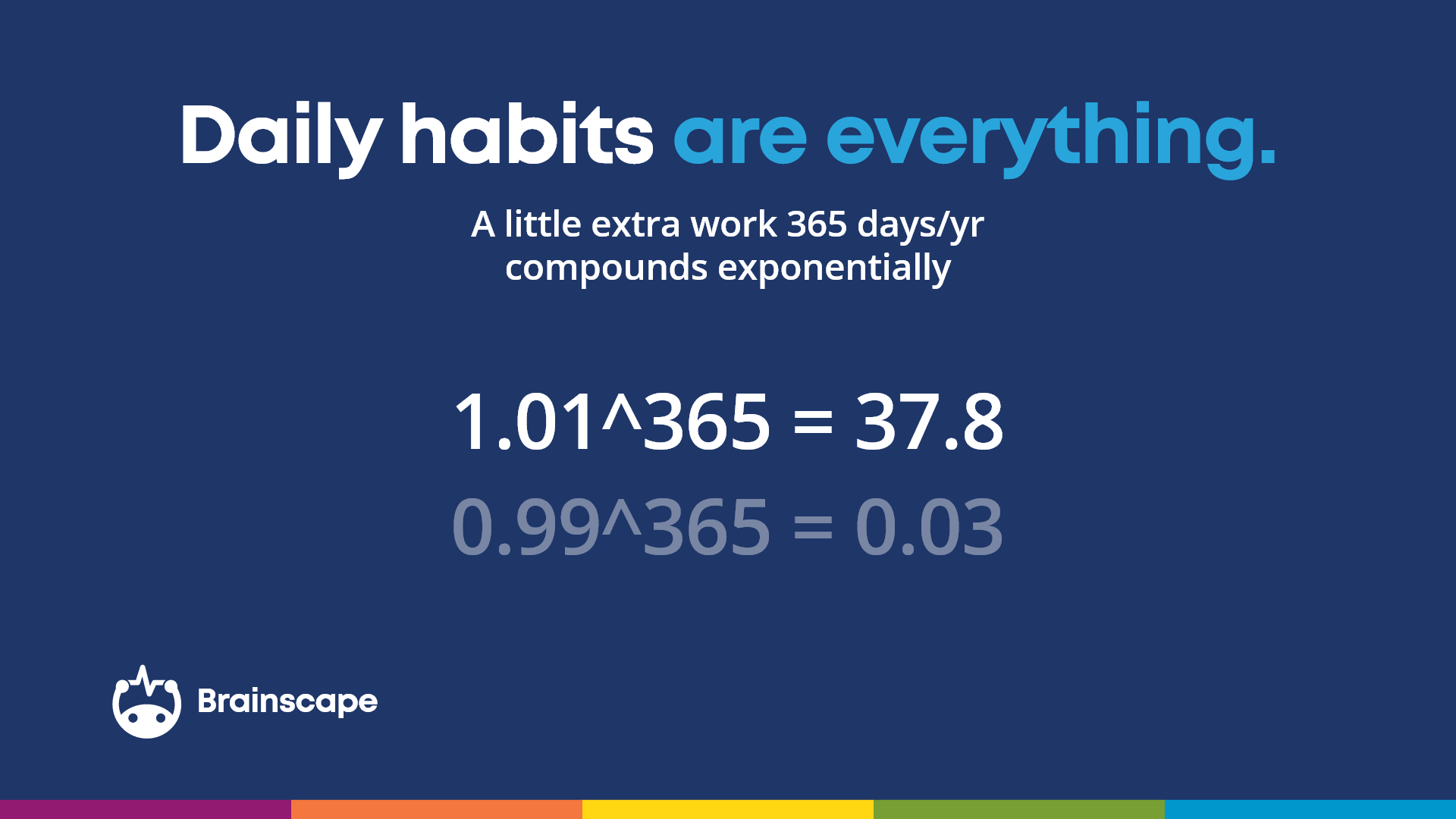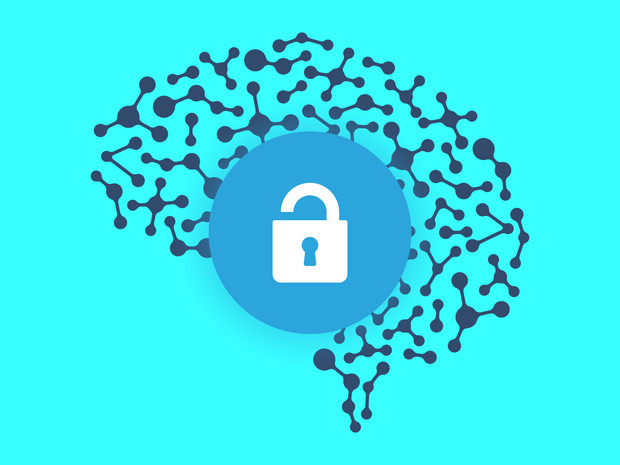Nowadays, it seems like everyone with an Internet connection has some kind of miracle shortcut or fast-track step-by-step plan to help you learn anything and learn better, whether it’s a language, cooking boeuf bourguignon, developing rippling abs, or becoming a lawyer.
Meditation retreats, speed reading, pills and supplements, superfoods, gamification of learning, mnemonic devices … you name it, someone has an opinion on it being the “miracle solution” to learning better than ever before.
Sorry to be a total party pooper but these things are all just short-term hacks or marginal productivity boosters. There really is only one guaranteed long-term growth tactic for human development and it’s spaced repetition. In this guide, we’re going to explain exactly why it’s the secret to how we learn and how it can be harnessed to improve your:
- Studies,
- Mental health, and
- Biological capabilities
You see, spaced repetition is the way your brain is hardwired to learn. The more it sees information—or rehearses skills or thought patterns—the easier it’ll remember that information/skill/thought pattern. It’s biology, baby.

It’s well-established science that spaced repetition is the best, most efficient method for human development. (It's why Brainscape’s adaptive learning platform helps millions of people master knowledge, facts, and languages multiple times faster than traditional methods.)
But it’s also the mechanism behind literally every biological development that involves cell memory! Particularly brain cell memory, when combined with motivation and deliberate cognitive processing.
So if you want the ultimate toolkit for human development—whether skills-based, knowledge-based or even a mindset—stick around. We’re going to explain the science of learning right now! You can also watch this short video with Andrew, Brainscape's CEO:
(Improve your mental and physical well-being with these small life-changing habits that take ZERO time!)
The secret to how we learn (with spaced repetition)
Let’s say you just tried a new card game today, playing a couple of rounds with friends before packing it in and doing something else. You'll probably need to play that game again very soon if you want to remember it. Otherwise, the next time you play, you'll basically have to re-learn it from scratch.
(This is called the “forgetting curve” and it explains how acquired knowledge fades from memory over time.)
The same applies to learning a more complex, long-term skill like guitar. If you want to learn a new chord transition or riff today, you'll probably need to repeat it like 100 times before you get it down perfectly. Then, you should ideally practice it again 30 times in an hour from now. Then 10 times tomorrow, 5 times next week, and finally at least once a month before the new guitar technique has become fully "internalized".
These numbers are, of course, theoretical. The point is that you can't learn anything new unless you are systematically refreshing the foundations of everything you have learned before, through the right pattern of repetition.
Your brain cells and their connections need continual strengthening. Otherwise, they decay, and you can't build upon them. This is the whole premise of spaced repetition, and the science of learning shows that the right interval between repetitions is the longest interval before which you would have otherwise forgotten the concept.
So, if you can figure out how to practice a skill or repeat knowledge you need to learn in the short, medium, and long term, you’ll have a solid plan for learning it so much more efficiently. (Read about the different spaced repetition systems and which one would be best for you!)
Pro Tip: The sweet thing about Brainscape is that we have built spaced repetition into our app’s algorithm, and the rate of knowledge refresh automatically adjusts based upon your unique pace of learning! For more on the science of spaced repetition—and how to harness it to learn more efficiently—check out our guide 'The science of never forgetting: Spaced repetition for fast learning that lasts'.)
The secret to improving mental health (with spaced repetition)

The "forgetting curve" I mentioned earlier can also apply to abstract mental health skills like reducing anxiety, improving sleep, practicing gratitude, and even forgiving people who have wronged you. How many times have you vowed to adopt a better, more positive mental attitude?
Every New Year’s Eve, right?
Well, the reason you think and respond the way you do to certain emotional or physical stimuli is that your brain is caught up in a pattern of thinking. And you don’t change patterns by simply telling your champagne-soaked brain at midnight that “this year, I’m going to practice gratitude every day!”
It takes practice and repetition to ingrain new habits, even if—especially if—those habits are ways of thinking that aren’t working for you anymore. Spaced repetition helps shift out that forgetting curve in just the same way it does with studying or learning!

Let’s look at an example: imagine you have just been exposed to a new skill like quieting your stress and become at peace with yourself through the power of practicing gratitude. Your initial exposure to this new skill is depicted in the above graph in line i.
If you only practice that gratitude once, the effects will eventually decrease to zero within a few days, and you will have "forgotten" all that inner peace you had gained from your initial gratitude session.
But if you repeat your gratitude practice over time, then each repetition will push out the "forgetting curve" further (all the way out to curve iv in the above graph), in the same way, that well-spaced flashcard repetitions make your Spanish verb conjugation skills more permanent.
Eventually, your brain will “permanently remember” your new happy, peaceful mindset, and you will be able to devote your daily mindfulness practices to other mantras besides just gratitude, thus building upon those stronger foundations you'd established.
This is the same reason why a meditation retreat isn't going to permanently solve all of your mental health challenges. Sure, going on a two-week Vipassana outing in the mountains with minimal food, no speaking, and no iPhone can be an incredibly powerful meditative experience that brings you mental peace for several weeks.
Yet, unless you continue to apply those daily mindfulness tools during the weeks, months, and years after that retreat, you're eventually going to slip back into your old destructive mental patterns and habits.

Need help remembering to study a little bit every day? Simply set study streak reminders in Brainscape! Go into the menu in the mobile app, select 'Notifications', and then toggle on 'Streak Reminders'. Those will show up as push notifications on your phone’s home screen, reminding you to stop what you’re doing and put in a quick study round with Brainscape. You can also customize the time of day you’d prefer to receive your reminders!
Now, let’s look at how spaced repetition can help you become a master of your own biology!
Check out: 'How to sound smarter in conversations (and actually BE smarter)'
The secret to human (biological) development

In the same way you can't build permanent brain cell connections by cramming the night before a test—or cramming all your life's meditation into a one-week retreat—you also can't achieve other permanent biological enhancements by cramming.
Building muscle strength or flexibility is a major example of this. Exercising over and above what you’re accustomed to actually tears muscle fibers (that’s why they hurt the day after). Your muscles will then "remember" the stress you've put them through and grow back bigger and stronger. But only if you continually exercise over time.
You can't just do bench presses for 24 hours straight one day so that you can stay jacked for the rest of the year. You have to be consistent in order to keep growing; although you can spread your workouts over a longer period of time if all you want to do is "maintain" your muscle.
Read: ‘Optimize your brain health for effective studying (and growth)!
This is the same reason that trees growing in windy areas become stronger by developing "stress wood" — but only if the wind is prolonged over time. One big hurricane won't be enough to make a sapling strong forever (if it doesn't kill it, to begin with). Trees need the spaced repetition of windy days in order to "learn" to build stronger fibers.

Spaced repetition even applies to your immune system. You might get a full dose of a certain vaccine today, then a booster dose in 6 months, and another booster in 10 years. Your immune system remembers the resistance it developed in response to the vaccine “instruction.” And doctors have figured out the optimal period of time for the booster, which is just before your body might have otherwise forgotten how to protect itself against a pathogenic threat.
This is why I mentioned earlier that spaced repetition is the secret to all "cell memory", not just learning and brain cells!
Spaced repetition: the next chapter in human development

Consistency, with systematically expanding intervals of repetition, is the secret to all biological growth, human and otherwise. There are no shortcuts. No cramming. The world is beginning to realize this and so should you, if learning is important to you.
Reaching the apex of your abilities involves atomizing your cognitive, mental, and biological growth into its fundamental building blocks, and then systematically repeating exercises that challenge the strength of those building blocks to their limits.
Spaced repetition is the story of the next century of human development. But you can start learning anything (and learning better) today with the Brainscape study app and by reading guides like ‘How to build strong study habits’, ‘How to study effectively’, and ‘Optimize your brain health for effective studying (and growth)!
For more awesome articles on how we learn and achieving your full potential, check out the Brainscape Academy and YouTube channel.
References
Millington, A. (2019, April 1). Exercise timeline: the effects of exercise over time. Nuffield Health. https://www.nuffieldhealth.com/article/what-are-the-effects-of-exercise-over-time
Sisti, H. M., Glass, A. L., & Shors, T. J. (2007). Neurogenesis and the spacing effect: Learning over time enhances memory and the survival of new neurons. Learning & Memory, 14(5), 368–375. https://doi.org/10.1101/lm.488707
Wittman, J. & CSU Stanislaus. (2020). The forgetting curve. https://www.csustan.edu/sites/default/files/groups/Writing%20Program/forgetting_curve.pdf
Yuan, X. (2022). Evidence of the spacing effect and influences on perceptions of learning and science curricula. Curēus. https://doi.org/10.7759/cureus.21201
